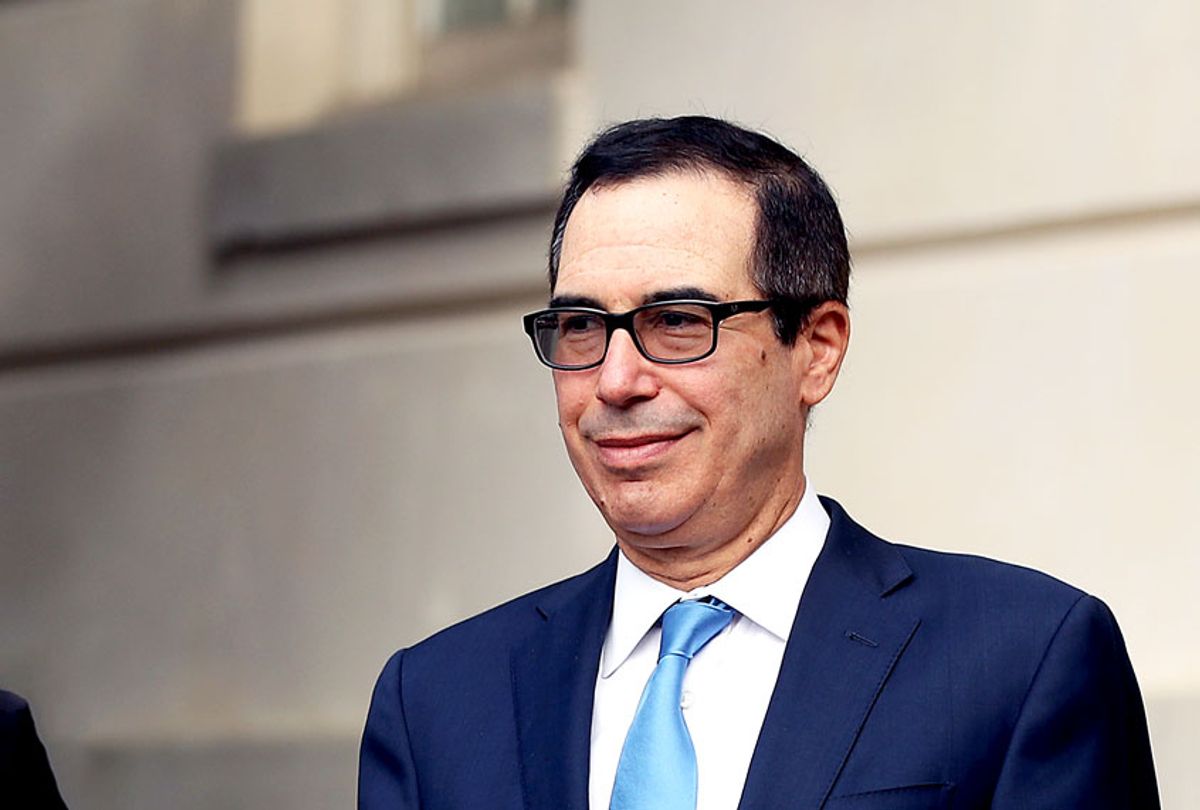Treasury Secretary Steven Mnuchin has repeated a widely-debunked claim that the enhanced federal unemployment benefit of $600 a week is a disincentive to work. Numerous studies have found that is not the case.
Mnuchin claimed in an interview with ABC News that "there is no question" the enhanced benefit is a disincentive to find a job in "some cases."
"We want to fix the issue where in some cases people are overpaid, and we want to make sure there's the right incentives," Mnuchin claimed as he continues to push to drastically slash the benefit from $600 to around $200 per week.
Host Martha Raddatz cited a recent Yale study that debunked his claim. The study found that the expanded benefits "neither encouraged layoffs during the pandemic's onset nor deterred people from returning to work once businesses began reopening."
"Workers facing larger expansions in unemployment insurance benefits have returned to their previous jobs over time at similar rates as others," the researchers wrote. "We find no evidence that more generous benefits disincentivize work either at the onset of the expansion or as firms looked to return to business over time. In future research, it will be important to assess whether the same results hold when states move to reopen."
Mnuchin responded that he "went to Yale" and doesn't always "agree" with the university before pointing to a "Chicago study" that found that the majority of unemployment recipients receive more from the benefit than their previous salary.
There is no question that many people get more from the benefit than their previous salaries, though multiple analyses have shown that the extra funds have helped prop up the economy amid an economic collapse and that reducing the benefit would shrink the economy and cost millions of jobs.
The study that Mnuchin cited did not even claim to answer the question of whether the additional money was actually a disincentive to work. But study after study has found that it has not affected businesses' ability to bring back workers.
A study by the Chicago Federal Reserve found that laid-off workers receiving the generous unemployment boost "search more than twice as intensely as those who have exhausted their benefits."
Another study by researchers at the New York Federal Reserve and the University of Pennsylvania found that job vacancies declined by 64% during the crisis but "employers did not experience greater difficulty finding applicants for their vacancies after the CARES Act, despite the large increase in unemployment benefits."
A study published by the National Bureau of Economic Research likewise found no evidence of Mnuchin's claim.
"States with more generous unemployment insurance benefits had milder declines and faster recoveries," the study said. "We find no evidence that high UI replacement rates drove job losses or slowed rehiring."
Arindrajit Dube, an economist at the University of Massachusetts, found that "there is no clear indication that [enhanced benefits] had an impact on the employment in the data through late July."
Ernie Tedeschi, a former Treasury Department economist, found "no evidence of any effect on labor market flows from more generous UI in May and June."
Democrats slammed Mnuchin for recycling a debunked talking point to defend a proposed 66% federal unemployment cut.
"Inflicting suffering on tens of millions of Americans by cutting unemployment benefits because of an anecdotal 'some cases' argument that has been refuted again and again by studies of actual data is a stupid way to make policy," said Rep. Don Beyer, D-Va., a member of the House Ways and Means Committee.



Shares